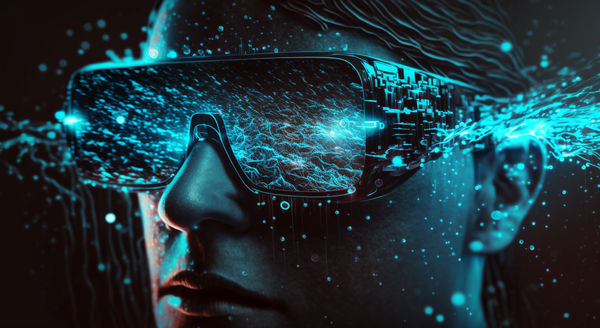Apple and Spatial Computing’s Threat to Privacy

Spatial Computing entered the chat
A new buzzword took the stage earlier this year when Apple released the Vision Pro, a device they described as their first spatial computer. The key takeaway is that Apple is showing us that we are at the verge of a new paradigm shift: Just as desktop computers gave way to mobile computers, the next generation of computers are spatial, with an understanding of the physical world and the ability to display information in the correct physical context.
But don’t let the snazzy new form factor of the Vision Pro fool you! Apple has been making spatial computers, of the handheld variety, for some time now. Modern smartphones are already capable of spatial computing and augmented reality, and have been waiting for the killer app to demonstrate the utility of rendering information in space.
Augmented reality is a faster language
In environments like Retail, spatial computing is already proving to be an invaluable asset - even with handheld devices. Putting incidents, tasks and products in their physical context makes it easier for staff members to find what they’re looking for and to communicate with each other. In work environments with high employee turnover, this accelerated knowledge transfer is a force multiplier. Adding the dimension of space to our language increases the bandwidth of our communication. Augmented reality is a faster and more precise language.
Of course, augmented reality’s potential for entertainment has also been demonstrated by one of the most successful apps of all time: Pokémon GO. Billions of dollars have been made by millions of people looking at the world through augmented eyes.
And therein lies the rub. The kind of fine-grained positioning needed for augmented reality cannot be provided by the GPS system, which needs line of sight to several satellites to be able to get even a rough positioning estimate. In the amazingly dense and vertical environments of cities like Hong Kong, the GPS system is starting to show its age - and for indoor environments it is ruled out all together.
Seeing the world through your eyes
To provide this fine-grained positioning, applications like Pokémon GO make use of the camera feed of the device. The image data from the device is compared, typically in a proprietary cloud, to a vast 3D reconstruction of the world.
For those of you who are paying attention, that means that augmented reality opens up the device to an extreme form of surveillance capitalism: corporations seeing the world through your camera - a camera that will one day be worn on your face, as Apple, Magic Leap, Microsoft and others are trying to show us.
The Decentralisation movement would do well to pay close attention to this development and consolidation of power. Should we allow the likes of Google and Meta to literally see the world through eyes? The science fiction author Alastair Reynolds recently penned the chilling short story “End User” to show just how dangerous that level of surveillance capitalism can be. It’s a thought-provoking piece with a hauntingly plausible plot line.
The call for decentralisation
The posemesh is the world’s first decentralised positioning service, allowing for fine-grained positioning without gathering data for a centralised authority or vendor. The blockchain enabled protocol lets us come together as a community to provide decentralised physical infrastructure (DePIN) for spatial computing in a way that is privacy-preserving. Those that care about decentralisation should pay close attention to this emerging battleground, because the foundational stack for positioning the AR metaverse will hold the keys to the most powerful surveillance machine ever devised. We should hope for the sake of our species that this power does not fall into the hands of any central authority or vendor.








